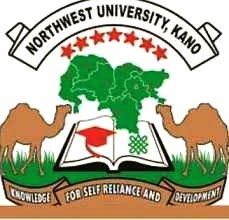The Best universities to study Petroleum and Gas Engineering in Nigeria
Petroleum engineering is a field of engineering that deals with activities related to the production of hydrocarbons, be it crude oil or natural gas. Exploration and production are considered to be in the upstream sector of the oil and gas industry.
If you’re interested in a career as a petroleum engineer in Nigeria, you’ll want to study at one of the top universities offering petroleum and gas engineering programs.
This is a five-year bachelor’s program and graduates of this course have career opportunities as petroleum engineers.
In today’s article, we’ll be looking into the best universities to study petroleum engineering in Nigeria.
Best Universities to Study Petroleum Engineering In Nigeria

Below are the best universities to study petroleum engineering in Nigeria
1. University of Lagos
The University of Lagos is one of the top schools for petroleum engineering in Nigeria. Established in 1962, it’s a highly-ranked university known for its distinguished faculty and modern facilities.
If you want to study petroleum engineering, the University of Lagos should be at the top of your list. Their petroleum engineering program provides a strong theoretical foundation combined with practical experience.
The University of Lagos also has an active Petroleum Engineering Students Association (PESA) which organizes industry talks, field trips to oil facilities, and an annual oil conference. If you want to prepare for a career as a petroleum engineer, joining PESA is a great way to gain experience and make valuable connections.
READ ALSO: Federal University Dutse Courses, Cut-Off Mark, School Fees
2. Covenant University
Covenant University is recognized as one of the top universities in Nigeria for petroleum and gas engineering. It has outstanding facilities and strong partnerships with major oil and gas companies, giving students valuable real-world experience.
Covenant University has some of the best engineering facilities in West Africa, including state-of-the-art laboratories, workshops, and equipment for experiments and practical simulations in petroleum engineering.
Covenant University has built strategic partnerships with major oil and gas companies operating in Nigeria like Shell, Chevron, Mobil and Agip. These partnerships provide opportunities for internships, field trips, mentorship, and employment after graduation. Students get exposure to real-life petroleum engineering challenges and insights that aid their learning and career preparedness.
READ ALSO: Best Universities to Study History and International Studies in Nigeria
3. Federal University of Technology, Owerri
The Federal University of Technology Owerri, otherwise known as FUTO, is one of the top universities in Nigeria to study petroleum and gas engineering. Established in 1980, FUTO has built a reputation for excellence in science and technology education.
When it comes to tuition, FUTO is very affordable compared to other universities. As a federal university, FUTO charges relatively low tuition fees for all programs.
A degree in petroleum and gas engineering from FUTO will provide you with a solid foundation in geology, thermodynamics, fluid mechanics, and other disciplines related to the oil and gas industry. FUTO has an excellent track record of producing graduates that go on to have successful careers as reservoir engineers, production engineers, and in other technical roles within major oil and gas companies.
If you’re looking for an affordable, high-quality education in petroleum and gas engineering, FUTO should be at the top of your list. You’ll get the skills and experience you need to launch your career, all at a price that won’t break the bank.
4. University of Port Harcourt
The University of Port Harcourt, also known as UNIPORT, should be at the top of your list for studying petroleum engineering in Nigeria. Established in 1975, UNIPORT has a long history of excellence in oil and gas education. Its petroleum engineering program is highly regarded, with many notable alumni in leadership positions in major oil companies across Nigeria.
UNIPORT has an extensive network of accomplished alumni in the petroleum industry. Graduates often find employment with companies like Shell, ExxonMobil, Chevron and the Nigerian National Petroleum Corporation. The university regularly hosts events where students can connect with alumni and learn from their experiences. These connections can lead to mentorships, internships and job opportunities after you graduate.
UNIPORT works closely with major oil and gas companies operating in Nigeria. These partnerships provide opportunities for field trips, guest lectures, research collaborations and student scholarships. Professors stay up-to-date with the latest technologies and best practices in the petroleum industry. Students gain practical experience and can build relationships that lead to jobs after university.
UNIPORT has well-equipped laboratories, simulation equipment, and software used in the petroleum engineering field. The university recently upgraded many of its engineering facilities through partnerships with companies like Shell. Students have opportunities for hands-on learning using the same tools and systems they will encounter in their careers.
Conclusion
Nigeria has a robust oil and gas industry, so job opportunities abound for graduates of these competitive programs.
READ ALSO: Best Universities To Study Crop Science Studies in Nigeria
FAQs
So you want to study petroleum and gas engineering in Nigeria? Below are some common questions and answers to help you get started:
1. What subjects will I study?
Some of the core courses you can expect include:
- Geology – Learning about rock formations and how oil and gas deposits form.
- Thermodynamics – Understanding heat and energy transfers involved in extraction and processing of oil and gas.
- Fluid mechanics – The flow and transport of liquids and gasses. Key for piping, pumping and refining petroleum products.
- Chemistry – Analyzing the chemical properties and composition of hydrocarbons and refining byproducts.
- Engineering design – Applying technical knowledge to design equipment, plants, pipelines and refineries.
2. What job opportunities are there?
Plenty Some options include:
- Petroleum engineer – Involved in exploration, drilling and extraction of oil and gas.
- Refinery engineer – Focuses on the refining and processing of crude oil into useful products like gasoline, diesel, kerosene, etc.
- Pipeline engineer – Designs and maintains pipelines for transporting oil, gas and their byproducts.
- Geoscientist – Studies the Earth to determine where oil and gas deposits may be located. Works closely with petroleum engineers.
- Health and safety engineer – Ensures oil and gas operations meet environmental regulations and worker safety standards.
3. What is the market demand of graduates of petroleum engineering ?
The job market for petroleum and gas engineers in Nigeria remains strong due to the country’s large oil and gas industry.









